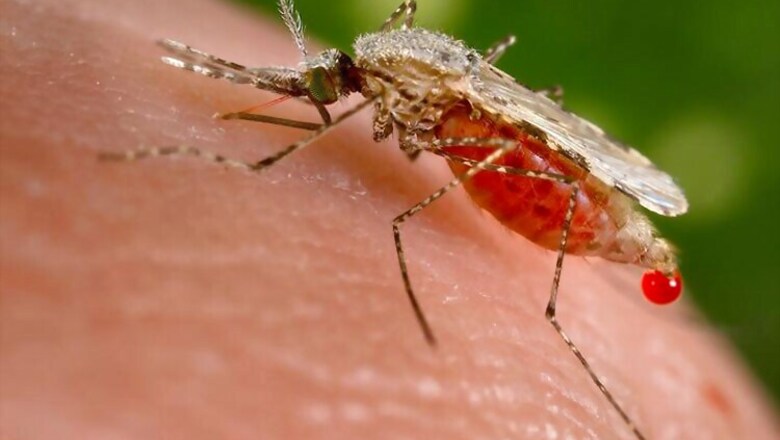
views
A form of mosquito-borne blood disease, Malaria, is very common to hear. However, as commonly as you may hear about it, malaria is a life-threatening disease. It’s typically transmitted through the bite of an infected Anopheles mosquito, which carries the Plasmodium parasite. Thereby, when this mosquito bites you, the parasite is released into your bloodstream.
Over 100 types of Plasmodium parasite can infect a variety of species. Different types replicate at different rates, changing how quickly the symptoms escalate, and the severity of the disease.
Symptoms:
The symptoms of the fatal disease can be seen within 6-8 days of the infected mosquito bite. They include high fever which can go up to 105 degree Fahrenheit, profuse sweating, fatigue, nausea, muscle pain among others.
Treatment:
When exposed to proper treatment, a malaria-infected patient can be cured within 15 days. The type of drugs and length of treatment depend on the type of malaria, where the person was infected, their age, whether they are pregnant, and how sick they are at the start of treatment. However, if this disease is left untreated, it can be a life-threatening condition, especially if you’re infected with the parasite Plasmodium falciparum.
Long term effects:
In the long run, malaria can be fatally charged. If malaria is left untreated, it could result in anemia, jaundice, mental confusion, kidney failure, a coma, seizures and even death. Cerebral malaria, which causes swelling of the blood vessels of the brain, can result in brain damage. The long-term outlook for patients with drug-resistant parasites may also be poor. In these patients, malaria may recur. This may cause other complications.
Malaria episodes (fever, chills, sweating) can return periodically over a period of years when it is not treated properly. After repeated exposure, patients will become partially immune and develop the milder disease.
Prevention:
There’s no vaccine available to prevent malaria. One way to prevent malaria is to avoid mosquito bites with the following strategies:
• As much as possible, stay indoors in well-screened areas, especially at night when mosquitoes are most active.
• Use mosquito nets and bed nets. It's best to treat the nets with the insect repellant permethrin.
• Wear clothing that covers most of your body.
• Use an insect repellent that contains DEET or picaridin. These repellents are applied directly to your skin, except around your mouth and eyes. If you choose a picaridin-based repellant, you will need to reapply it every several hours.
• Apply permethrin to clothing.

















Comments
0 comment